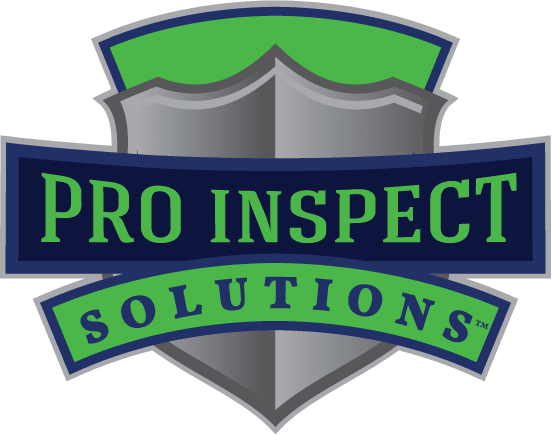
by Pro Inspect Solutions0 comments
23Mar
Mistakes to Avoid When Buying a Home
Buying a home is often considered one of the most significant milestones in a person’s life. It’s a momentous occasion that symbolizes stability, independence, and the realization of long-held dreams. However, the journey to homeownership can be fraught with challenges, especially for first-time buyers who may not be familiar with the intricacies of the real estate market. At Pro Inspect Solutions, we understand the importance of making informed decisions when purchasing a home. With our extensive experience in property inspections, we’ve seen our fair share of mistakes that buyers make, and we’re here to help you avoid them. In this comprehensive guide, we’ll cover the key mistakes to avoid when buying a home, providing valuable insights and practical tips to ensure a smooth and successful homebuying experience.
Skipping the Inspection Process
One of the gravest mistakes a homebuyer can make is skipping the inspection process. A home inspection is a critical step in the home buying journey, as it provides invaluable insights into the condition of the property. From identifying structural issues to uncovering hidden defects, a thorough inspection can save you from potential headaches and financial setbacks down the line. At Pro Inspect Solutions, our team of certified inspectors meticulously examines every aspect of the property, from the roof to the foundation, to ensure that you’re fully informed about its condition before making a purchase decision. By investing in a comprehensive home inspection, you can proceed with confidence, knowing that you’re making a sound investment.Neglecting to Research the Neighborhood
When buying a home, it’s essential to look beyond the four walls of the property and consider the neighborhood it’s located in. The neighborhood plays a significant role in your overall quality of life, affecting everything from safety and schools to amenities and property values. Before making an offer, take the time to research the area thoroughly. Look into factors such as crime rates, school districts, proximity to parks and recreational facilities, and future development plans. Additionally, consider factors such as commute times, access to public transportation, and proximity to shopping and dining options. By thoroughly vetting the neighborhood, you can ensure that it aligns with your lifestyle and long-term goals.Overlooking Your Budget
Buying a home is a substantial financial commitment, and it’s crucial to establish a realistic budget before beginning your search. While it may be tempting to stretch your budget to afford your dream home, doing so can put you at risk of financial strain and compromise your long-term financial security. Before starting your home search, sit down and carefully evaluate your finances; consider factors such as income, expenses, savings, and debt obligations. Determine how much you can comfortably afford to spend on a home, taking into consideration not just the purchase price, but also ongoing expenses such as property taxes, insurance, utilities, and maintenance costs. By setting a realistic budget and sticking to it, you can avoid overextending yourself financially and ensure a more sustainable homeownership experience.Ignoring Red Flags
When touring potential homes, it’s essential to keep your eyes peeled for any red flags that could indicate underlying issues with the property. These may include signs of water damage, cracks in the walls or foundation, outdated electrical or plumbing systems, or evidence of pest infestations. While some issues may be minor and easily fixable, others could be symptomatic of more significant problems that could require costly repairs. As experienced home inspectors, we’re trained to identify these red flags and provide you with an unbiased assessment of the property’s condition. Don’t ignore or dismiss red flags—addressing them upfront can save you time, money, and stress in the long run.Rushing the Decision-Making Process
Buying a home is a significant decision that shouldn’t be rushed. It’s essential to take the time to carefully evaluate your options, conduct thorough research, and consult with professionals such as real estate agents and home inspectors. Rushing into a decision can lead to buyer’s remorse or cause you to overlook critical details that could impact your satisfaction with your purchase. Before making an offer, be sure to weigh the pros and cons of each property, consider your long-term goals and priorities, and ensure that the home aligns with your needs and lifestyle. By taking a deliberate and thoughtful approach to the homebuying process, you can make a more informed decision and increase your chances of finding the perfect home.Failing to Get Pre-Approved for a Mortgage
Before you start shopping for a home, it’s essential to get pre-approved for a mortgage. A mortgage pre-approval not only gives you a clear understanding of how much you can afford to spend on a home but also signals to sellers that you’re a serious and qualified buyer. Without pre-approval, you may run the risk of losing out on opportunities or facing delays in securing financing, potentially jeopardizing your ability to purchase the home you want. To expedite the pre-approval process, gather all the necessary financial documents, such as tax returns, pay stubs, and bank statements, and work with a reputable lender who can guide you through the process. By getting pre-approved for a mortgage, you can streamline the homebuying process and position yourself as a strong and competitive buyer.Not Considering Future Needs
When buying a home, it’s essential to consider not just your current needs but also your future ones. While a property may meet your needs today, it’s essential to think ahead and consider how your lifestyle may change over time. Are you planning to start a family? Will you need space for a home office or a backyard for pets? Are you nearing retirement and looking for a home that’s accessible and low maintenance? By considering your future needs and priorities, you can ensure that the home you choose will continue to meet your requirements in the years to come. Additionally, think about factors such as resale potential and neighborhood dynamics, as these can impact the long-term value and desirability of the property. In conclusion, buying a home is a complex and multifaceted process that requires careful planning, research, and consideration. By avoiding these common mistakes and seeking guidance from professionals like Pro Inspect Solutions, you can navigate your homebuying journey with confidence and peace of mind. Remember, a little foresight and due diligence can go a long way toward ensuring a successful and rewarding homeownership experience. If you’re in the market for a new home, don’t hesitate to reach out to us for expert advice and assistance. We’re here to help you make informed decisions and find the perfect home for you and your family.


